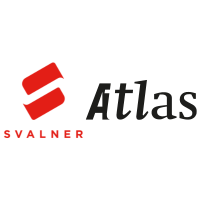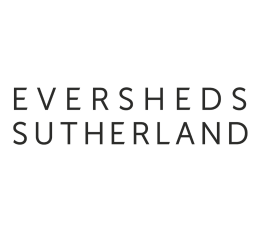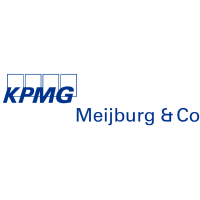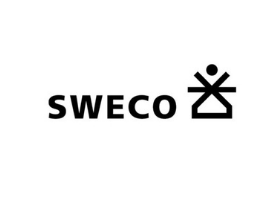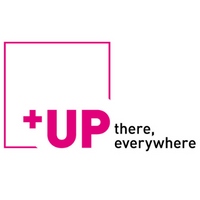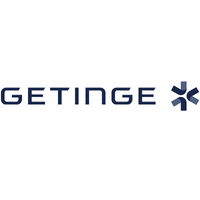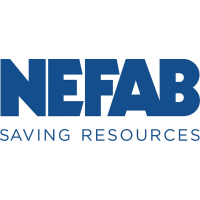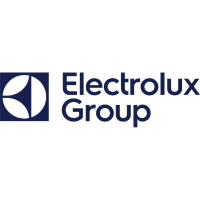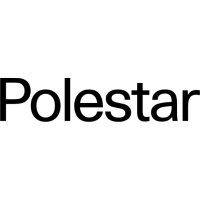Swati Narwal Joins the Swedish Chamber and Young Professionals Mentorship Program 2025 as a Mentor
Swati Narwal brings over 15 years of diverse experience spanning IT, banking, and retail, having worked across India, Sweden, and the Netherlands. Her career journey reflects a remarkable ability to adapt and evolve, navigating six career transitions while continually challenging herself to grow both personally and professionally.
Current Role and Expertise
For over a decade, Swati has been a key figure at IKEA, specialising in organisational design, work methodologies, and business effectiveness. In addition to her strategic role, she leads and facilitates leadership development programmes, helping shape the next generation of leaders within the organisation.
Leadership Coaching and Public Engagement
An ICF-certified executive coach, Swati works closely with senior leaders and teams, guiding them toward clarity, confidence, and impactful decision-making. Beyond her corporate contributions, she is an experienced public speaker, sharing insights at global forums, and previously served as Chairperson of the Young Professionals Committee at the Swedish Chamber of Commerce for the Netherlands.
Her extensive knowledge and passion for leadership development make her an invaluable mentor for this year’s programme.
Applications Now Open
The Swedish Chamber and Young Professionals Mentorship Programme 2025 offers a unique opportunity to connect with Swati and other accomplished mentors.
More
Hear from our mentor coach, Hendrik Jan Guitink.
Hear from our mentor coach, Hendrik Jan Guitink, as he discusses the exciting journey ahead for the Class of ’25.
We are very excited that we will start a new version of our Mentorship Program on March 6 with the Class of ’25.
With a great mix of experienced and new Mentors ‘on board’ and with very exciting, expert speakers as subject matter owners on topics that interest our young and ambitious mentees, we are looking forward to another great edition of this long-lasting, successful program. Previous editions have given all of us a great deal of satisfaction.
The program is developed to give our participants the chance to connect and learn from experienced professionals and be part of a network that can last a lifetime. However, the mentors also pick up on many topics themselves through their meetings and by attending the live sessions.
The coming year, we will cover topics such as;
Leadership and Sustainable Leadership
Personal and Professional Branding
Mindfulness and Work-life Balance
Business Culture
Next to our live sessions, the mentors and mentees will meet privately to pick up on any topic of their choice.
I am looking forward to our first session, in which we introduce mentors and mentees to each other and set goals for the whole program.
“In a gentle way, you can shake the world” (M. Gandhi)
Hendrik Jan Guitink
More
Ingka Group’s €1 Billion Commitment to Recycling Infrastructure
As part of an ongoing commitment to sustainability, Ingka Group, the largest IKEA retailer, is taking influential steps to support the circular economy. Through its investment arm, Ingka Investments, the group aims to invest €1 billion in companies advancing recycling infrastructure. This initiative reflects the organization's mission to address critical environmental challenges by increasing recycling capacity and reducing waste.
The urgency of this investment is underscored by the fact that the global economy consumes 75% more natural resources annually than the planet can renew, with less than 20% of waste currently recycled. Established in 2017, Ingka’s Circular Investments portfolio has already achieved impressive results, recycling 2.7 million tonnes of materials and avoiding over 9.4 million tonnes of CO₂ emissions.
Key examples of impact include:
RetourMatras, a leader in mattress recycling, converts discarded mattresses into materials like repoliol, a sustainable alternative used in IKEA products. Their facilities recycle up to 2.5 million mattresses annually across Europe.
Morssinkhof Rymoplast, a post-consumer plastic recycler, has doubled its recycling capacity to 515,000 tonnes annually, supplying recycled materials to brands worldwide.
Next Generation Group, which develops innovative technologies for recycling plastics and treating organic waste, creates economically and ecologically efficient solutions.
Peter van der Poel, Managing Director of Ingka Investments, emphasized the group’s commitment to fostering a circular economy, calling for stronger legislation to prioritize recycling and eco-design practices.
By supporting reuse, repair, and recycling, Ingka Group demonstrates its dedication to reducing reliance on pure materials and combating climate change.
More
Top five tech trends of 2025 report
In a recent LinkedIn post , Dr. Cara Antoine, Executive Vice President at Capgemini and keynote speaker at the Swedish Chamber of Commerce Annual Sustainability and Innovation Event on December 6, 2024, highlighted the Capgemini Research Institute's Tech Trends 2025 report, which identifies the Top 5 Tech Trends set to reshape industries and redefine possibilities.
The report outlines:
- Generative AI: With 82% of companies planning to integrate AI agents in the next 1–3 years, this trend focuses on automation, creative problem-solving, and hyper-personalisation.
- Cybersecurity: AI is transforming digital defence, with 97% of organisations reporting GenAI-related breaches, highlighting the need for advanced safeguards.
- AI-Powered Robotics: Collaborative robots (Cobots) are reshaping workforces and boosting productivity, with 43% of venture capitalists identifying this as a major growth area.
- Nuclear Energy: Small modular reactors (SMRs) and advanced nuclear technologies are meeting growing energy demands while maintaining a focus on sustainability.
- Next-Gen Supply Chains: The convergence of AI, blockchain, and IoT is creating smarter, more resilient, and sustainable logistics networks.
More
Meet our mentor, Björn Atterstam
Björn Atterstam brings over 30 years of expertise as an educator, leadership specialist, and facilitator, with a distinguished career dedicated to equipping leaders to navigate complexity and uncertainty in a rapidly evolving global landscape.
With experience spanning senior leadership roles in international management consultancies and corporations, Björn’s career highlights include his tenure at Prudential Plc in London, where he focused on talent, leadership, and organisational culture development.
Björn’s Areas of Expertise:
- Leadership and Organisational Performance – Supporting leaders to rethink strategies and adapt in dynamic environments.
- Global Influence – Advising and training thousands of leaders across industries and regions worldwide.
- Academic Leadership – Leading the Personal Leadership Development (PLD) course for MBA students at the Rotterdam School of Management.
- Psychological and Organisational Insight – Integrating human behavioural understanding into organisational growth and success.
More
Join the Swedish Chamber of Commerce – Unlock Insights, Innovation, and Growth
At the Swedish Chamber of Commerce, we are dedicated to empowering businesses and professionals through thoughtfully curated events, programmes, and resources. By focusing on core values such as sustainability, innovation, and diversity, we provide unparalleled opportunities for knowledge-sharing and strategic growth.
As a member, you will gain exclusive access to a range of carefully designed programs that equip you with the insights, tools, and networks needed to accelerate your business. Our offerings include impactful seminars, industry-leading speakers, and personalised collaboration opportunities, all designed to help you stay ahead in today’s fast-paced business environment.
Stay informed with our regular News Feed updates and the Swedish Chamber Insights digital magazine, both of which provide the latest trends and developments from the business world.
Become a member today and connect with a dynamic community of professionals and companies shaping innovation and success.
More
The Swedish Lunch at WEF 2025: Celebrating 10 Years
On January 22, 2025, The Swedish Lunch marks its 10th anniversary at the World Economic Forum in Davos. Since its launch in 2014, this private event has brought together global leaders, innovators, and policymakers to discuss sustainability, equality, innovation, and inclusive growth.
This year, the event will focus on key global topics, including:
Sustainability & Impact Investing
AI & Global Progress
Inclusive Growth
Hosted at the Schatzalp Hotel in Davos, and sponsored by the NATO Innovation Fund, The Swedish Lunch continues to be a vital platform for fostering meaningful connections and advancing global discussions aligned with the UN 2030 Agenda for Sustainable Development.
More
Meet Gabriele Hamm Adler, Mentor of 2025
Gabriele Hamm Adler brings nearly 30 years of leadership experience with IKEA, where she held key global roles, including Global HR Manager and Global Competence Development Manager. Her career has taken her across Germany, Sweden, Denmark, and the Netherlands, shaping her expertise in international leadership and organisational development.
Beyond her corporate achievements, Gabriele shares her passion for leadership as a Senior Lecturer and Module Owner for Personal Leadership Development in the Master’s Programme of Supply Chain Management at the Rotterdam Business School.
What makes Gabriele an exceptional mentor?
- Certified systemic and change management coach (University of Cologne)
- Accomplished leadership development consultant and executive coach
- Expertise in value-based leadership and company culture
- Proven experience in designing and executing global learning and organisational development programmes
More







